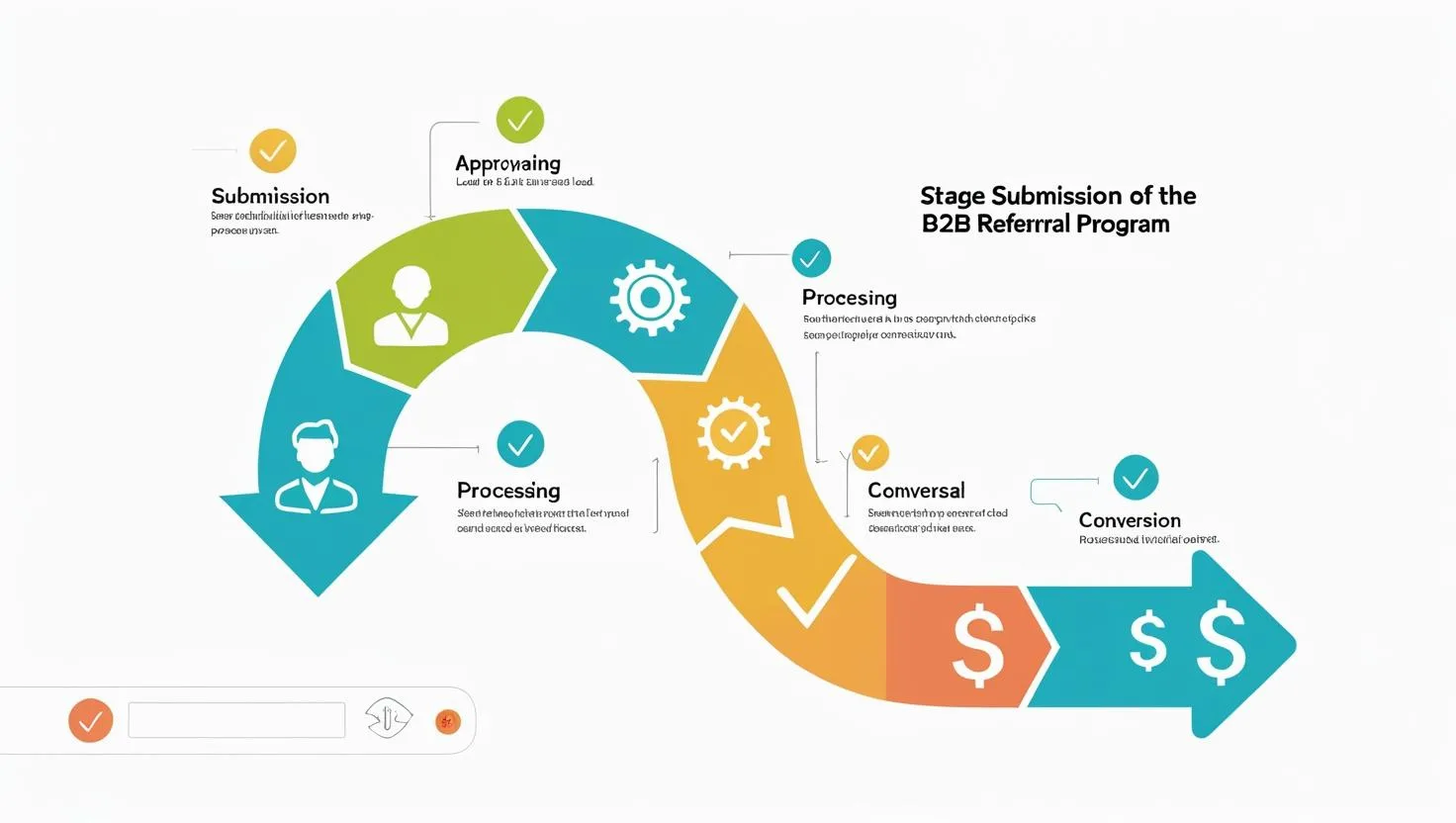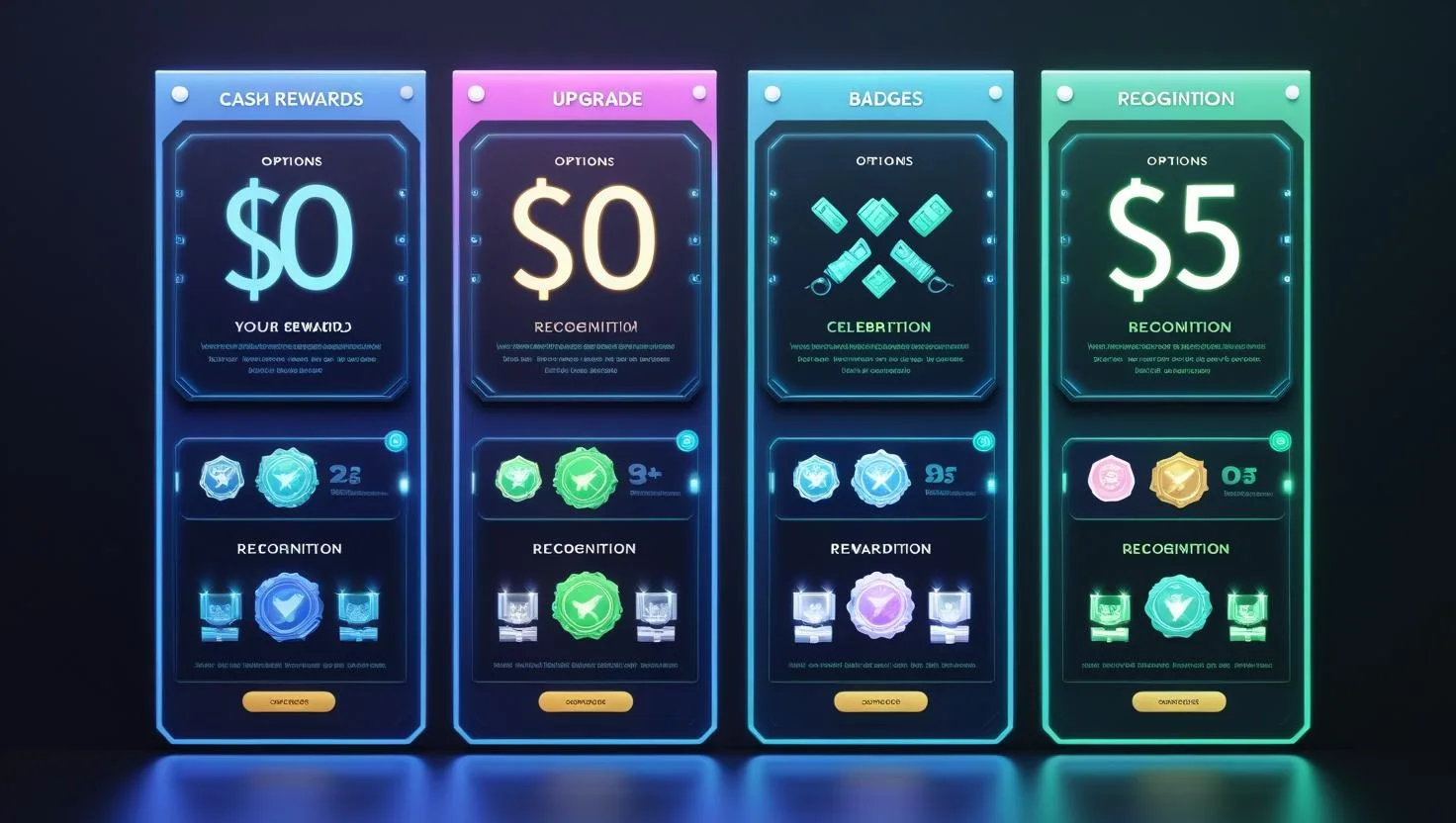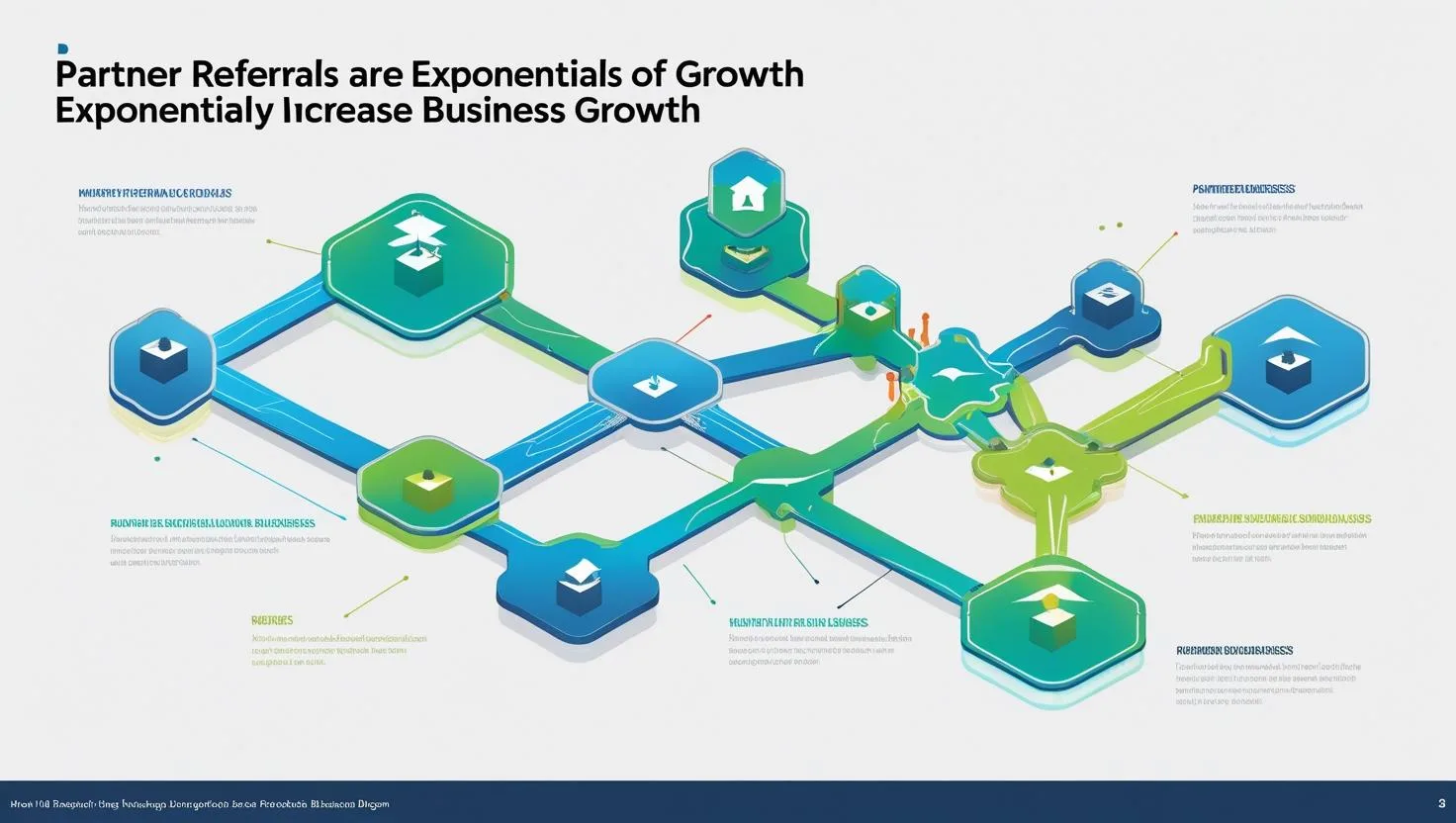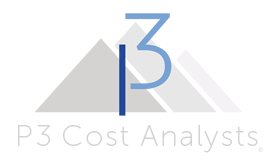Building trust in business-to-business (B2B) industries takes time, effort, and consistency. But once that trust is earned, it opens the door to one of the most powerful and cost-effective growth strategies available today: B2B referral programs.
For companies like P3 Cost Analysts, where professional services hinge on reliability, accuracy, and long-term relationships, a well-structured referral program can become a key pillar of growth. Unlike cold outreach or paid ads that require constant reinvestment, referral marketing works by turning existing clients, vendors, and industry partners into enthusiastic advocates. These partners don’t just promote your services, they vouch for them with credibility that money can’t buy.
This guide explores how referral programs tailored to B2B needs can help small and mid-sized businesses generate high-quality leads, reduce marketing costs, and strengthen customer loyalty. Whether you’re just exploring referral strategies or looking to improve an existing program, we’ll break down the core components that make referral marketing successful, sustainable, and scalable.
You’ll learn how to:
-
Understand what makes a B2B referral program work (and what doesn’t)
-
Build a framework that motivates users and partners to refer
-
Choose the right referral software to streamline tracking and rewards
-
Create compelling incentives that keep your pipeline full
-
Leverage partner programs to scale referrals without losing quality
At its core, a successful referral program is about more than generating leads. It’s about nurturing long-term advocacy, building a stronger reputation, and creating win-win outcomes for everyone involved. With the right tools, structure, and strategy, you can transform your best relationships into a predictable source of growth.


B2B Referral Programs: Foundations for Small Business Growth
Small businesses often face a difficult balancing act of how to grow without overspending on marketing. That’s where a B2B referral program comes into play. These programs offer a low-cost, high-trust solution to acquiring new clients, especially for service-based companies. Instead of relying on traditional ads or cold sales calls, referral programs tap into existing relationships, customer satisfaction, and partner credibility to drive leads organically.
A referral from a trusted contact carries more weight than a pitch from a stranger. In B2B industries, where purchase decisions tend to be more complex and involve multiple stakeholders, that trust is even more valuable. When a satisfied client, vendor, or strategic partner recommends your business, they’re effectively transferring their confidence in your services to someone else. This is what makes B2B referrals so powerful. They’re based on relationships, not transactions.
Why Referrals Work So Well in B2B
Unlike B2C, where consumers can make quick purchasing decisions, B2B buying cycles are longer and more deliberate. Clients are looking for reliable partners, not just good deals. That’s why a strong B2B referral program focuses on building advocacy over time. It gives partners and clients a framework to share your value with others in a way that feels natural and beneficial.
The key is to move beyond casual word-of-mouth. A structured program creates clarity around who should refer, what makes a referral qualified, and what rewards participants can expect. For example, P3 Cost Analysts may provide their auditing clients with a simple online form to submit referrals, along with tiered rewards based on the value or number of leads shared. These systems turn informal recommendations into a measurable and repeatable growth strategy.
Turning Clients Into Advocates
Happy clients already know your value. Why not make it easy for them to share it? That’s the heart of customer advocacy in B2B referral marketing. When your program rewards loyalty and simplifies the referral process, it naturally encourages more users to participate.
Some of the most effective B2B programs offer:
-
Service upgrades or discounts for successful referrals
-
Recognition in newsletters or online partner directories
-
Early access to new services or premium resources
-
Direct financial incentives where appropriate
The idea is to offer real value without making it feel transactional. Your advocates should feel like partners in growth, not just lead generators.
Building the Foundation
To build a solid referral foundation, companies should:
-
Identify ideal referral partners (e.g., clients, vendors, associations)
-
Define what qualifies as a referral
-
Establish a rewards structure that’s simple and motivating
-
Use referral software to manage tracking and communication
-
Keep participants informed and engaged through regular updates
Ultimately, referral programs don’t just drive growth. They build a stronger, more loyal community around your business. And in today’s competitive market, that community can be your biggest advantage.
Understanding the Essentials of a B2B Referral Program
At its core, a B2B referral program is a structured approach to turning satisfied clients, partners, or vendors into growth drivers for your business. It offers incentives, financial or otherwise, in exchange for high-quality, qualified leads. But the real power of referral marketing comes not from the mechanics, but from the relationships and trust it’s built on.
In professional services, referrals aren’t casual mentions, they’re personal endorsements. A client who refers you is putting their reputation on the line, so your referral program must be professional, seamless, and genuinely rewarding.


What Sets B2B Referral Programs Apart
Unlike B2C programs that focus on volume and quick conversions, B2B programs prioritize quality and long-term relationships. The sales cycles are longer. The decisions are often made by committees. And the stakes, both financial and reputational, are much higher.
Here’s what makes B2B programs different:
-
Trust-based decision-making: Businesses are more selective and often rely on recommendations from industry peers.
-
Multiple stakeholders: A single referral might have to pass through legal, finance, procurement, and executive teams.
-
Contractual complexity: The services referred often involve legal agreements and deep data sharing.
-
Higher customer value: Each converted referral can result in long-term revenue, making even a single lead highly valuable.
Key Elements of a Strong B2B Referral Program
To create a referral ecosystem that consistently delivers results, companies must focus on structure, clarity, and usability. Some of the most important components include:
-
Clear value proposition: Why should someone refer you? What sets your service apart?
-
Defined referral criteria: Who qualifies to submit referrals? What counts as a “qualified” lead?
-
Simple submission process: An online form, integrated referral software, or CRM tie-in makes participation easy.
-
Reward transparency: Make it clear what partners will receive, when, and how it’s delivered.
-
Partner resources: Provide co-branded materials, case studies, and testimonial content to make advocacy effortless.
Building Long-Term Advocacy
Customer advocacy is the secret weapon in B2B referral marketing. Your current clients already understand your service and trust your team. By encouraging them to become referral partners, you’re boosting lead volume, reinforcing loyalty, and deepening relationships.
Here’s how to build and maintain advocacy:
-
Keep the tone authentic—avoid sounding like a sales pitch
-
Offer value-based incentives (not just cash)
-
Acknowledge referrals publicly, when appropriate
-
Use referral software to automate and personalize communications
The best B2B referral programs feel less like a marketing campaign and more like a shared mission. That sense of partnership creates long-term engagement, stronger connections, and a sustainable referral engine that scales with your business.
Why Launch a B2B Referral Program for Professional Services?
For professional service firms, especially those in specialized industries, a B2B referral program can do more than just generate leads. It can become a cornerstone of business development, customer retention, and brand reputation.
In this space, where relationships drive deals and trust is non-negotiable, referrals are often the strongest path to new business. When a client or partner recommends your service, that recommendation carries weight. It signals credibility, reliability, and proven results. All qualities that advertising can’t replicate.


Why Professional Services Are a Natural Fit for Referral Marketing
Referral marketing isn’t new. But in the world of B2B professional services, it offers several distinct advantages over other forms of lead generation:
-
Deals are based on trust: Clients in professional services typically invest in long-term relationships. A warm introduction from someone they trust speeds up decision-making.
-
Reputation matters: A strong referral program doesn’t just attract leads, it builds credibility through client advocacy.
-
Personal networks are powerful: Clients, vendors, and industry contacts often know others facing similar business challenges.
-
Lower acquisition costs: Referrals usually require less nurturing, meaning fewer hours spent on outreach and a higher return on marketing investment.
-
High lead quality: Referred prospects often have clearer expectations and stronger intent to buy.
The Hidden Benefits of B2B Referral Programs
Beyond lead generation, launching a referral program helps improve client engagement and long-term loyalty. Here’s how:
-
It creates a feedback loop: Asking clients or partners to refer others opens the door to dialogue about what they love, where you can improve, and why they trust you.
-
It supports retention: Referral incentives give clients a reason to stay connected, long after the initial service is complete.
-
It strengthens partner networks: Vendors, consultants, and channel partners become active collaborators in your growth.
-
It builds community: A shared referral program connects like-minded professionals who benefit from your service and each other’s success.
A great example is creating a tiered referral system for long-term clients. Those who refer multiple businesses over time may receive exclusive perks like early access to services, co-marketing opportunities, or even recognition in your newsletters. This reinforces their value to your business and encourages repeat engagement.
Getting Stakeholder Buy-In
A successful B2B referral program also supports internal alignment. When sales, marketing, and client success teams all understand the referral structure, they can actively promote it during onboarding, check-ins, and performance reviews. This makes referral marketing a cross-functional asset that drives growth while reinforcing your service culture.
Professional services businesses already operate on trust, performance, and referrals. I’s how new business often starts. A structured B2B referral program simply amplifies what’s already working by giving it visibility, process, and rewards.
Exploring the Benefits of a Referral Program in B2B Expense Auditing
For companies in specialized fields like expense auditing, launching a B2B referral program is more than a marketing move. It’s a business multiplier. Because this industry depends on precision, confidentiality, and long-term client engagement, referrals carry extra significance. A recommendation from a peer isn’t just a tip, it’s a vote of confidence in your methods, ethics, and results.
At P3 Cost Analysts, the benefits of a structured referral program are both immediate and long-term. From lowering acquisition costs to increasing lifetime value, referrals create a scalable, relationship-driven path to growth.
Top Benefits of B2B Referral Programs in Expense Auditing
Here’s what makes referral marketing particularly impactful in this space:
1. Built-in Trust and Credibility
In expense auditing, prospects are cautious. They need to know their financial data will be handled securely and accurately. A referral from someone they trust significantly reduces hesitation and accelerates decision-making.
2. Higher Lead Quality
Referred leads tend to be:
-
Pre-qualified
-
Better aligned with your services
-
Further along in their buying journey
This results in shorter sales cycles and higher close rates which is critical for firms with specialized offerings.
3. Lower Cost Per Acquisition
Referral marketing eliminates much of the trial-and-error of paid ads or cold outreach. Instead, you gain access to warm leads at a fraction of the cost, especially when managed through referral software that streamlines tracking and reward management.
4. Ongoing Client Engagement
Offering rewards or recognition to clients who refer others keeps your brand top of mind. It also deepens loyalty. Clients feel invested in your success when they’re part of your referral ecosystem.
5. Scalable Community Building
Each referred client has the potential to become a referrer themselves. Over time, this creates a network effect where satisfied users and partners continuously bring new leads into the fold.
Tangible Business Outcomes
When implemented strategically, a B2B referral program can have a measurable impact on multiple business metrics, such as:
-
Lead-to-close conversion rate
-
Client retention and satisfaction
-
Revenue per client
-
Referral-driven revenue growth
P3 Cost Analysts tracks key indicators like total referrals submitted, conversion rates from each referral source, and the ROI on referral rewards. This data-driven approach ensures the program stays aligned with overall business goals and delivers continuous improvement.
Long-Term Advantage Through Advocacy
Beyond dollars and deals, referral programs help create an advocacy loop. Clients who refer others are often more loyal, more engaged, and more likely to share testimonials or participate in case studies. In a high-trust industry like auditing, this advocacy enhances your reputation far beyond what paid marketing can achieve.
In short, a referral program doesn’t just generate leads. It builds a high-performing community of brand advocates, trusted partners, and loyal clients who grow with you.
How to Design a High-Performing B2B Referral Program
Creating a successful B2B referral program takes more than offering rewards. It requires a deliberate, strategic approach that aligns with your business goals, client expectations, and operational capabilities. For service providers, designing a high-performing referral system means balancing structure with simplicity, making it easy for clients and partners to refer while ensuring high-quality leads and meaningful outcomes.


Here’s how to build a referral program that delivers sustained results.
Step 1: Define Clear Program Objectives
Start by outlining exactly what you want to achieve:
-
Are you focused on expanding into new industries like telecom or waste and recycling?
-
Do you want to increase revenue from existing verticals like property tax or managed print?
-
Is the goal to grow brand awareness or deepen partner relationships?
Setting specific, measurable goals (such as generating 20 qualified referrals per quarter or achieving a 30% referral-to-conversion rate) gives your program direction and purpose.
Step 2: Identify Your Ideal Referral Sources
Not all advocates are created equal. Map out potential referral partners by category:
-
Current satisfied clients
-
Strategic vendor partners
-
Industry consultants and associations
-
Internal stakeholders or past clients
Prioritize those with deep networks, strong satisfaction scores, or aligned business interests.
Step 3: Build a Simple and Transparent Referral Process
Ease of use is critical. Your referral system should include:
-
A centralized portal or form for submission
-
Clear instructions on what qualifies as a valid lead
-
Automated confirmation and tracking
Using dedicated referral software helps eliminate confusion and ensures that every referral is accounted for. Features like real-time tracking, status updates, and CRM integration can streamline internal processes while giving referrers visibility into their contributions.
Step 4: Design a Reward Structure That Motivates
Your incentives must reflect the value of the lead while remaining financially sustainable. Options include:
-
Flat-fee payments (e.g., $250 per closed referral)
-
Percentage-based rewards tied to contract value
-
Tiered rewards for multiple referrals
-
Service credits or exclusive access to premium offerings
-
Public recognition (e.g., partner spotlights or testimonials)
Balance tangible rewards with relationship-focused perks. For professional services, prestige or access often matters just as much as money.
Step 5: Provide Advocacy Resources
Make it easy for referrers to talk about your business. Offer:
-
Case studies and testimonial videos
-
Customizable email templates
-
One-pagers or brochures
-
Co-branded collateral for partners
These assets equip your advocates to make confident, consistent recommendations and increase the chances of high-quality leads.
Step 6: Onboard, Educate, and Support
Once someone joins your referral program, don’t leave them guessing. Provide:
-
A welcome email outlining next steps
-
A referral toolkit or dashboard walk through
-
Ongoing access to support or a dedicated point of contact
An educated referrer is more likely to stay active and submit leads that convert.
Step 7: Track, Measure, and Optimize
Use referral tracking tools to measure:
-
Total referrals submitted
-
Referral-to-close conversion rate
-
Time-to-conversion
-
Average value per referred client
-
Reward fulfillment rates
This data helps refine your outreach, optimize rewards, and identify top-performing referral sources. You’ll also be able to spot bottlenecks and adjust the program in real time.
Step 8: Promote Your Program Consistently
Don’t let your referral program live in the shadows. Feature it on:
-
Your website (homepage, blog, and footer)
-
Email signatures
-
Invoices and client reports
-
Client review calls
-
Partner and vendor check-ins
Make the opportunity visible across every client and partner touchpoint to drive awareness and engagement.
Tracking Success: The Role of Referral Software in B2B Programs
One of the biggest differences between an average and a high-performing B2B referral program is how well it’s tracked and managed. In professional services, accuracy, accountability, and transparency are non-negotiable. That’s where referral software becomes an essential tool, helping you streamline every step of the referral process from submission to reward fulfillment.
Tracking referrals manually through spreadsheets or email threads can quickly become messy, especially as your program grows. With the right software in place, your team can focus on building relationships and generating results, not chasing paperwork or digging through inboxes.
![]()
![]()
Why Tracking Matters in B2B Referral Marketing
A strong tracking system benefits everyone involved in the program:
-
Partners and users know exactly where their referrals stand and when to expect rewards.
-
Your team avoids confusion, double entry, and dropped leads.
-
Leaders and marketers get data-driven insights into performance and ROI.
Without accurate tracking, it’s impossible to optimize your program. You may reward the wrong leads, lose high-value referrals, or miss opportunities to re-engage advocates who’ve gone quiet.
What Good Referral Software Should Deliver
Choosing the right referral program tools is crucial for scalability and long-term success. Effective software must handle the following functions:
1. Real-Time Referral Tracking
-
See who submitted what and when
-
Track the full lead lifecycle from referral to close
-
Identify conversion rates by user, partner, or channel
2. Reward Automation and Transparency
-
Automatically calculate and trigger rewards based on referral outcomes
-
Send instant confirmation emails to participants
-
Offer a dashboard or portal where partners can track their earnings
3. User-Friendly Submission Forms
-
Enable clients and partners to refer leads in under two minutes
-
Allow form access via email, website, or account portals
-
Eliminate manual data entry and minimize friction
4. CRM and Operations Integration
-
Sync with platforms like Salesforce, HubSpot, or QuickBooks
-
Link referral data to existing workflows and client records
-
Reduce duplicate effort across teams
5. Security and Compliance
In professional services, client data must be handled with care. Your referral software should:
-
Offer data encryption
-
Enable user permission controls
-
Maintain clear audit logs for compliance and reporting
6. Performance Dashboards and Analytics
-
Track top referrers, most successful campaigns, and revenue per referral
-
Test different reward structures or partner types
-
Use insights to fine-tune messaging, incentives, and outreach
Results You Can Measure
Using referral software allows businesses to confidently report on:
-
The number of referrals received in a given time frame
-
The quality and source of each lead
-
The ROI of their referral marketing program
-
Reward fulfillment accuracy and timeliness
These metrics are pivotal in securing executive buy-in, managing budgets, and evolving your program over time.
Incorporating a Partner Referral Approach for Enhanced Client Trust
As your B2B referral program evolves, expanding it beyond clients to include strategic partners can unlock powerful new growth channels. A partner referral model allows your business to collaborate with vendors, consultants, and industry peers. People who already have access to your target audience and understand the value of your services.
For professional service firms, where trust and credibility are everything, a well-structured partner program turns those relationships into measurable business impact. It’s not just about generating more referrals, it’s about deepening trust and creating a shared path to growth.
What Is a Partner Referral Program?
A partner referral program is an extension of your standard referral model. Rather than relying solely on current or past clients, you invite professional allies such as:
-
Independent consultants
-
Trade associations
-
Technology vendors
-
Brokers or service providers in adjacent industries
These partners already have networks of qualified leads. With the right tools, incentives, and visibility, they can become consistent sources of high-value referrals.
Why Partner Referrals Work
B2B referrals are driven by trust, and trust is often transferred by association. When a respected vendor recommends your service, the prospect is more likely to take the meeting—and more likely to convert.
Benefits of partner referrals include:
-
Access to new verticals without starting from scratch
-
Faster sales cycles due to inherited trust
-
Stronger alignment between referral source and prospect needs
-
Higher-quality leads pre-screened by knowledgeable partners
Setting Up a Partner Referral System
A successful partner program should include the following elements:
1. Defined Roles and Rewards
Outline what partners are expected to do—e.g., submit leads, share content, attend joint events—and what they’ll receive in return. Offer flexible incentives such as:
-
Financial commissions
-
Co-marketing opportunities
-
Exclusive access to premium content
-
Public recognition or listing in a partner directory
2. Onboarding and Enablement
Equip partners with the resources they need to succeed, including:
-
Overview decks and one-pagers
-
Industry-specific case studies
-
Clear guidelines on qualified leads
-
Access to referral software for submissions and tracking
3. Regular Communication
Stay top of mind with:
-
Monthly or quarterly partner updates
-
Recognition of top referrers
-
Early access to service updates or content
-
Partner-exclusive webinars or Q&A sessions
These touchpoints help maintain momentum and ensure partners feel supported, not just solicited.
Aligning Trust with Scalability
Not every partner should be accepted into your program. Vet participants to ensure:
-
They serve a complementary market
-
They understand your service offering
-
They share your values around client care and data protection
Quality control protects both your brand and your referred leads, ensuring that every introduction is credible and actionable.
Measurable Results with Referral Software
Using the same referral software platform for both client and partner referrals creates consistency. Partners can:
-
Submit leads easily
-
Monitor their impact
-
Track rewards in real-time
-
Receive updates and feedback
Internally, you’ll be able to measure:
-
Partner engagement
-
Referral volume and quality
-
Conversion rates and earned rewards
-
Contribution to overall referral-driven revenue
Building a Network of Advocates
When partners experience results, they become long-term advocates. And as their confidence in your service grows, so does their willingness to recommend you. Over time, your partner referral network becomes a scalable, reputation-driven growth engine that reinforces your brand at every touchpoint.


Unlock Sustainable Growth with a B2B Referral Program Built for Your Business
In today’s competitive B2B landscape, trust, value, and relationships drive success more than ever. A well-executed B2B referral program empowers your business to leverage its strongest assets, satisfied clients, trusted partners, and loyal advocates, to generate consistent, high-quality leads and long-term revenue.
Referral marketing isn’t just another channel, it’s a reflection of how your business builds trust, delivers results, and creates meaningful impact for clients. Whether you’re looking to reduce acquisition costs, expand into new markets, or deepen your industry presence, a structured referral system provides the foundation to do it efficiently and sustainably.
With the right approach, you can:
-
Turn every satisfied client into a repeat advocate
-
Build a partner referral network that scales with your business
-
Automate tracking, reward management, and communication through robust referral software
-
Gain actionable insights from referral data to guide your growth strategy
Now is the time to make referrals a central part of your business development. Whether you’re just starting out or ready to refine an existing program, P3 Cost Analysts can help you build a tailored, high-performing referral system designed for real B2B success.
Want to get started?
Explore our referral program solutions or connect with our team to learn how we can help you launch, manage, and scale a strategic referral system that fits your goals.


